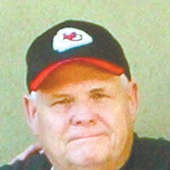Another western remake
American men my age have one compelling shared interest from our youth, and that is watching any movie, made in the old fashioned "Western" style. This past Monday, a group of my fellow seniors attended the newly released Golden Globe winning, "Revenant." It bought back a lot of old memories, about the American West.
I will give you a brief review of the movie first. Leonardo DiCaprio stars in this movie, and he once again proves why he is considered one of our best current American actors. For most of the movie, you struggle along with him, as he battles through the cold wilderness of the northern Rocky Mountains, in the early 19th century.
After the movie's conclusion, I came away with a host of thoughts, but there were physical impacts too. I actually felt tired and sore, after watching DiCaprio's epic battle against unbelievable odds. It was reported that in an interview regarding his time at these awe inspiring locations, that he made reference to the fact that he had never felt so cold in his life.
So my advice to any of you readers is simple. If you want to go and watch a movie that depicts a time in our history that is not very often in fashion anymore, then this is just that movie. If you want to go and see a movie that has realistic special effects, than this is a cinematic experience worth your time.
This movie is based upon what is referred to as a true story. As is always the case in Hollywood, the screenplay takes some literary diversions from the actual facts, but it is a movie not a documentary.
One last note about the use of this story by other venues. According to TIME Magazine, this movie was based upon the 2002 book "Revenant," by author Michael Punke. But as the magazine article reports, this wasn't the first time that the story about the mountain man, Hugh Glass was told.
In the same article, Time listed some previous literary stories. In 1939, The New Deal-era Federal Writers' Project published "The Oregon Trail," a history of the American West in which Hugh Glass appears. Back then in its review of the book, TIME called him "the angriest man in U.S. history.
TIME did not mention in this article, that there was one other movie that used the same basic set of events for its plot. In 1971, legendary actor Richard Harris starred in a movie titled "Man in the Wilderness." I found it interesting, that the character Harris portrayed was named Bass, which was so close to the name of the real person.
Here are the basic facts of this old west legend. In 1823, beaver pelts were a treasured commodity for the retail hat business. Mountain men from many countries and backgrounds ventured into the wilderness of the North American west, to either trade with the native Indians for these pelts, or trap them themselves.
The beaver trade lasted from the late 1700s to about the time of the beginning of the famous Oregon Trail exodus, in the 1840s. The trade came to a natural end due to two basic changes. First and foremost, the trappers had been so successful for so many years, that the beaver population was nearing extinction. The other change had to do with the apparel industry. Silk hats replaced the use of beaver pelts, and there was no longer any demand.
Although the mountain men and the beaver trade lasted only about four decades, they were the first white men, to ever successfully live in the American wilderness. Their lifestyle and exploits have become the topic for many western tales.
During the height of this era (1823), Hugh Glass joined a team (according to TIME), to travel up the Missouri River, to the Grand River, in modern-day South Dakota. The band was organized by a man named Andrew Henry.
One day Glass is horribly mauled by a grizzly bear. He is so badly injured, that the group felt they could not carry him safely back to civilization. Two men are paid extra money to remain behind with Glass until he dies, and they are to then give him a decent burial. When Glass does not die, the two men fearful of their own ability to safely return from deep in Indian country decide to leave him behind.
I will leave the rest of the story untold. I hope I have whetted your appetite to the point, where you will want to go and see how things turn out for Glass. I assure you the movie is worth your time. It did not win the Golden Globe award for both the movie and DiCaprio's performance without merit.
I guess what made me and my fellow seniors enjoy the movie so much, was actually due to the fact that it was a "Western." When we were young, that genre dominated much of the entertainment world.
I can still remember my grandfather reading his "dime western" novels. He considered writers like Zane Grey to be some of the very best. But western movies were also famous back then.
Actors like John Wayne and Gary Cooper, cut their acting teeth in westerns. When we went to the movies on Saturdays at the Fox Theater, more often than not, it was to see a western.
When television entered most American homes in the 1950s, westerns made up a huge chuck of the schedule. Shows like "Bonanza," "Gunsmoke," "Have Gun Will Travel," "Rawhide," "Wyatt Earp," "Maverick," "The Lone Ranger," "The Rifleman," "Wanted Dead or Alive," "Laramie," "The Virginian," "Wagon Trail," "The Big Valley," and "Cheyenne," were just a few of the most memorable.
No male my age will ever forget Gene Autry or the "King of the Cowboys," Roy Rogers. The stories of the American west are the foundation for what made us unique as Americans. The "Revenant" is just one more link in that chain!

